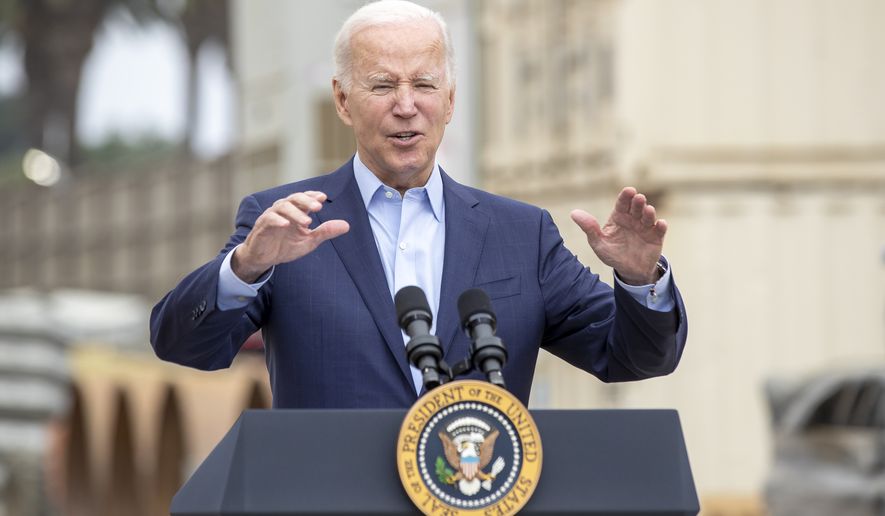The Biden administration on Thursday extended the COVID-19 public health emergency through Jan. 11 despite the president’s declaration last month that the pandemic was “over.”
The extension to the public health emergency, which was first declared in January 2020, accompanies officials’ warnings of a potential surge in infections over the winter.
Dr. Ashish Jha, the White House COVID-19 response coordinator, urged Americans to blunt the potential spike in infections by getting the updated COVID-19 vaccine, which targets dominant variants of the virus.
“If you are up to date with your vaccines and if you get treated, if you have a breakthrough infection, your risk of dying from COVID is now close to zero,” he told reporters Tuesday.
The public health emergency declaration has enabled the government to quickly get shots into arms and distribute testing and treatments for free.
It has also expanded Medicaid coverage to millions and been a legal basis for other claims of executive power — prompting suspicion from some conservatives.
But President Biden had declared that the pandemic had ended in an interview with CBS’ “60 Minutes” last month when asked point blank by reporter Scott Pelley: “is the pandemic over?”
“The pandemic is over,” Mr. Biden replied. “We still have a problem with COVID. We’re still doing a lotta work on it. It’s — but the pandemic is over.”
The statement followed a shift in Washington toward treating the virus as a manageable threat rather than a crisis, as deaths and hospitalizations have declined steadily.
His response had been at odds with Dr. Jha’s statement at a White House press briefing less than a fortnight earlier.
“The pandemic isn’t over,” Dr. Jha said on Sept. 6. “We will remain vigilant, and of course, we continue to look for and prepare for unforeseen twists and turns.”
The remarks also sparked Republican backlash over his request that Congress fork over another $22 billion in emergency pandemic relief as part of a stopgap funding measure ahead of last month’s fiscal deadline.
They have also have been used against the White House in legal challenges over Mr. Biden’s use of the pandemic to justify his plan to write off billions in student loan debt and impose vaccine mandates for federal contractors.
The administration said Thursday that it would provide 60 days’ notice before ending the public health emergency.
For more information, visit The Washington Times COVID-19 resource page.
• Joseph Clark can be reached at jclark@washingtontimes.com.




Please read our comment policy before commenting.